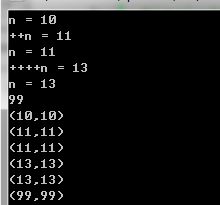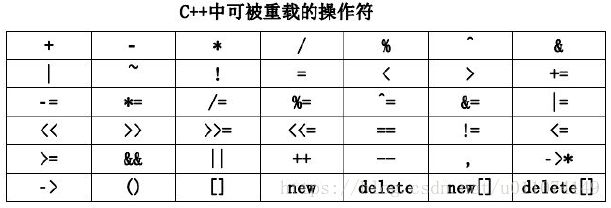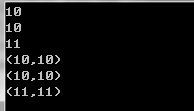- 河北大学计算机科学与技术考研,计算机专业考研经验贴(重)
gymsummer
河北大学计算机科学与技术考研
该楼层疑似违规已被系统折叠隐藏此楼查看此楼首先,欢迎各路学弟学妹报考河北大学计算机专业研究生。作为学院新培养方案的第一届15级研一新生,我有幸和大家分享下本专业考研历程。其他专业也可参考一下,多少还是有相似之处且在本帖后面会有开学需要注意的事项。欢迎转帖分享。我是大四10月份才开始准备的,没有来得及报辅导班,复习了将近三个月,每天六点起,晚上十点半回寝室。最后以299分通过初试。所以,为了比较轻松
- 080:vue+cesium 利用PointPrimitiveCollection绘制4个不同颜色不同位置的点
还是大剑师兰特
#cesium综合教程200+大剑师cesium教程cesium入门cesium示例
作者:还是大剑师兰特,曾为美国某知名大学计算机专业研究生,现为国内GIS领域高级前端工程师,CSDN知名博主,深耕openlayers、leaflet、mapbox、cesium,canvas,echarts等技术开发,欢迎加微信(gis-dajianshi),一起交流。查看本专栏目录-本文是第080篇文章文章目录一、示例效果图二、示例介绍三、配置说明四、示例源代码(共101行)五、相关文章参考一
- ThreeJS入门(226):THREE.CSS3DRenderer 知识详解,示例代码
还是大剑师兰特
#ThreeJS综合教程500+大剑师threejs入门threejs教程threejs示例
作者:还是大剑师兰特,曾为美国某知名大学计算机专业研究生,现为国内GIS领域高级前端工程师,CSDN知名博主,深耕openlayers、leaflet、mapbox、cesium,webgl,ThreeJS,canvas,echarts等技术开发,欢迎加微信(gis-dajianshi),一起交流。查看本专栏目录-本文是第226篇入门文章文章目录特性构造函数方法`render(scene,came
- 2021年 江南大学研究生考试 算法与程序设计 题目
Bears9
算法数据结构
(2021年江南大学851真题)回忆版,免费供大家学习参考。如有雷同,那人是我室友(室友让我发的)。1、什么是线型结构(8分)删除一个链表的头结点,关键处给出注释(12分)2、题目描述:关于像素点,周围有边界像素,中间是内容像素。从某个内容像素开始上色,依次按右、上、左、下顺时针顺序进行上色。直到将所有的内容像素上色完成什么是栈?(8分)如何用栈的思想完成上色过程?画出图解(12分)3、如何用冒泡
- 非科班研究生转码-零基础学java笔记总结复习(2)
Javaer.Zhang的乞讨之路
java大数据后端android算法
说明:该Java笔记是基于B站韩顺平老师讲的Java来总结提炼的,其中参考了韩老师总结的笔记。具体内容可到B站观看韩顺平老师的Java详细了解。省略号表示不重要。。。具体参考韩老师笔记。目录级别,例:第#章#.##.#.##.#.#.#正文重点内容使用加粗,下划线,红体字等表示。全部内容共28章。需要了解哪章进主页看序号即可。[本文为第二章]目录第2章JAVA概述2.1什么是程序2.2JAVA诞生
- 揭秘华为用工模式:OD与正式员工的真实差异
菁英猎人职业教育
面试软件测试互联网华为面试职场和发展python开发语言测试用例
近日,一位研究生在社交平台分享了自己的遭遇,被华为劝退,引发了对华为用工模式的关注。其中,华为OD(OutsourcingDispatcher,精英外包)作为一种特殊的用工形式,成为了讨论的焦点。今天,我们就来深入解析一下华为OD与正式员工的真实差异。1.华为正式员工:华为的正式员工工号以“00”开头,享有完善的福利待遇。他们可以按照5%的比例缴纳公积金,并且在达到一定工作年限后,有机会参与员工持
- 搭建设计一个校园交友系统源码的过程,售后一对一+圈子全开源码教程+全面搭建指南
前端小程序php
搭建设计一个校园交友系统源码是一个复杂但有趣的过程,以下是一个全面指南,旨在帮助你从头开始搭建一个功能齐全、安全可靠的校园交友系统。一、明确目标与需求目标用户:明确你的目标用户群体,如大学生、研究生等,了解他们的交友需求和偏好。功能需求:根据目标用户,列出所需功能,如用户注册与登录、个人资料展示、匹配推荐、聊天功能、动态发布等。二、技术选型后端技术:可以选择PHP等成熟的后端开发语言。PHP结合T
- 从研究生到管培生,看98年校招生如何让更多企业用上通义灵码
云原生
黄天翔是2024年7月入职阿里云的应届校招生,他说,在研究生阶段便已接触并使用通义灵码,通义灵码速度快、学习成本低,几乎无门槛,且具备强大的跨文件理解能力,能生成满足需求的代码。通过实际操作,他利用通义灵码成功构建了一个基于Python和Flask框架的简易识图网站,他希望通过自己的努力,帮助更多企业和开发者提高工作效率。黄天翔提到,第一次接触到通义灵码是在研究生阶段,当时在工程项目中代码里有使用
- 厉国刚:新闻学与传播学到底有何区别
微观大道
厉国刚:新闻学与传播学到底有何区别头几天,有人在知乎上问我:新闻学与传播学到底有何区别。他是一位想要跨专业考研的学生,对新闻传播学学科可谓了解甚少,甚至一头雾水,想要让我帮他解释解释。在研究生学硕层面,新闻传播学是一级学科,分成新闻学、传播学这两个二级学科。有些高校,还自设了广告学、出版发行学等其他二级学科,但从官方角度,新闻传播学一级学科下,正统的就是那两个二级学科。招生时,一般会按一级学科招,
- 2024年华为杯数学建模研赛C题思路代码+论文助攻
DS数模
2024华为杯数学建模华为2024华为杯2024研究生数学建模2024研赛
2024年华为杯研究生数学建模竞赛(以下简研赛)将于9月21日上午8时正式开始。下文包含:2024研赛思路解析、研赛参赛时间及规则信息说明、好用的数模技巧及如何备战数学建模竞赛C君将会第一时间发布选题建议、所有题目的思路解析、相关代码、参考文献、参考论文等多项资料,帮助大家取得好成绩。2024年研赛将于9月21日上午8时正式开始这里有些资料,大家可以看看:【2024最全国赛研赛数模资料包】C君珍贵
- 感恩日记
美玲_
1,感恩小妹一大早,就发来了给妈妈洗浴后的照片。看到老妈平安健康,心中很是喜悦。祈愿老妈~在世的菩萨,健健康康平平安安,有妈在,家就在。让在外的儿女逢年过节有归心似箭的心情。2,感恩姚老师咖啡冥想研究生滴2期的义工团队,及时通报我参加学习事宜。让我这次学习不再,毫无准备,手忙脚乱。做好学习安排。3,感恩永红接受我的邀请,参与姚老师咖啡冥想研究生延续班,4,感恩丰盛10门的素娜,提议的语音好方法,更
- 小乌龟 第16章 小粉和妈妈一起上班
佐佑不分
文/佐佐今天小乌龟想跟妈妈一起上班,可是妈妈说:“不行,你还小,不能跟我一起。等你小学毕业了,读了初中高中大学研究生,研究生毕业,你就可以跟妈妈一起上班啦。”小粉说:“那要等到什么时候啊?我想现在就跟你去体验一下。”妈妈说:“好吧,今天就带你去一次,下次就不准再去了。如果再去的话,你上班的时候就忘记妈妈怎么来教育你的,你就白去了一趟了,知道吗?”她说:“知道啦,知道啦,明天早上把我也叫上去看看你班
- 又想躺平,又很焦虑
青杉
焦虑会怎样影响我们的生活呢?也许你会发现,在适当的焦虑下,自己的工作、学习效率提升了,顶着“害怕xxx”的达摩克利斯之剑,反而任务完成的比平时要顺畅,焦虑情绪在一定程度内或许对我们的生活有积极意义。但是焦虑情绪超过了那“一定”的程度,反而会降低我们的行为能力,产生拖延、恐惧、抵触等心理。我的一个朋友已经研究生毕业一年了,但是一直没有恢复正常的生活轨道,有很多事情必须得做但又十分抵触,每天都在逃避找
- 强强联合(阿渣阿美系列第18首)
文学山主编山下
《强强联合》/山下阿美能够接受阿渣是看中他农村人的勤快老实研究生毕业后,相过几次亲一晃,就过了30岁父母大学任教,本不同意这门婚事抱上小外孙,才渐渐喜笑颜开阿渣常炫耀自己大字不识几个照样娶个知识分子还是城里的千金大小姐城镇化速度太快。没几年阿渣老家的房子要拆迁当了拆二代,走到哪都风光无限江湖上没人再叫他阿渣都叫渣总、渣哥,甚至渣爷阿渣忙于应酬,常夜不归宿回家没个好脸,脾气越来越暴他怪阿美是城镇户口
- 梦境的人物分析 | 讨厌的B=教授···?
阿靖与小Y
这个如此不敬的想法让我一次又一次的删减字句。还是得继续下去。一个我如此讨厌的人,居然和受人尊敬的教授扯上关系?是的。奇葩B的出现,还代表了我对Z教授的蔑视。或许也会有人不屑,蔑视就有违道德吗?首先,Z作为知名大学教授,底下的得意门生众多,古语也有说“尊师重道”。而且,Z平常为人平和,和我们这些普通打工人士交流,也没有摆架子、自命清高的姿态。我觉得,要是报研究生、博士,考到他名下也挺好的吧,导师为人
- Sam Altman微软Build 2024最新演讲:AI可能是下一个移动互联网
木易AI信息差
人工智能aigptOpenAIchatgpt
大家好,我是木易,一个持续关注AI领域的互联网技术产品经理,国内Top2本科,美国Top10CS研究生,MBA。我坚信AI是普通人变强的“外挂”,所以创建了“AI信息Gap”这个公众号,专注于分享AI全维度知识,包括但不限于AI科普,AI工具测评,AI效率提升,AI行业洞察。关注我,AI之路不迷路,2024我们一起变强。北美时间5月21日,2024年度微软Build开发者大会在美国西雅图拉开帷幕。
- 自我介绍
828b26b24495
姓名:张筱专业方向:中国古代音乐史学号:20182001016正文:我叫张筱,来自于湖北宜昌五峰,是一个地地道道的土家族人。祖祖辈辈生活在灵秀的五峰这个小山城里,大山是我的母亲。今年22岁的我,时常感叹我这一路走来总是伴随着幸运。从高中决定学习音乐,到考上本科武汉音乐学院的音乐学系,再到如今考上国音的研究生,我常常想,虽然我付出了一定的努力,但也是不缺乏幸运的成分!所以我最大性格就是安于天命,乐观
- 百练OJ——2019研究生推免上机考试笔记
智慧的旋风
acm/机试程序设计
这两天在刷题,就写一篇博客水水。没全做完,看到最后三题做的人不多就先不做了(捂脸)。传送门:2019研究生推免上机考试A:有趣的跳跃简单的模拟#include#include#includeusingnamespacestd;inta[3005],b[3005];intn;booljudge(){for(inti=1;i>n;for(inti=1;i>a[i];}for(inti=1;i#incl
- 孩子别再拿你最该奋斗的青春去消费
白纸与黑字
开学已经一个月了,近日淘宝数据公布的一组趣味榜单显示开学学院包裹量超平时4-5倍,第一批00后消费势力堪比研究生。在网购日益火爆的今天大学生成为了网购的主力军,无疑在消费市场上占据重要地位。然而,有关大学生读书现状的一组数据却令人担忧。有35%的大学生平均每天读书时间超过一小时,有5%的学生平均每天读书超过三小时,其余65%学生平均每天读书时间少于一小时。大学生们到底每天在干些什么呢?这让我真的很
- vue+threeJS示例(001): 不断翻转的立体箱体
还是大剑师兰特
#ThreeJS综合教程200+threejs入门threejs教程threejs示例大剑师
作者:还是大剑师兰特,曾为美国某知名大学计算机专业研究生,现为国内GIS领域高级前端工程师,CSDN知名博主,深耕openlayers、leaflet、mapbox、cesium,canvas,echarts等技术开发,欢迎加微信(gis-dajianshi),一起交流。查看本专栏目录-本文是第001个示例文章目录一、示例效果图二、示例简介三、配置说明四、示例源代码(共88行)一、示例效果图二、示
- 成人继续教育有用吗 成人大专文凭好考吗
一个爱看书的
成人继续教育有用吗成人大专文凭好考吗文府书院王老师解答学历问题成人教育是指有别于普通全日制教学形式的教育形式。成人教育不限年龄,性别。通过这个教育过程,使社会成员中被视为成年的人增长能力、丰富知识、提高技术和专业资格,或使他们转向新的方向,在完成学业后,颁发国家承认的学历证书,毕业证书获得者的待遇与普通高校同类毕业生相同,都可以参加硕士研究生考试、公务员考试、司法考试等。符合相关条件者,都可以申请
- 原著《人世间》:于虹开口要房子,揭开了她最真实的人性
四月海豚
自从我看了原著《人世间》后发现电视剧里的于虹与原著相差太多。电视剧里的于虹与赶超感情很好,脾气也不错。她心地善良,在秉昆和郑娟困难的时候给予帮助。他们在周秉昆坐牢期间,经常去看他,还帮他们打扫房子。但是最新的一集里,于虹张口问郑娟要房子开始,我对她的好印象全部没了。01自从赶超离世后,于虹要供着儿子上学确实不容易。于虹的儿子当时已经上研究生,以后也有能力让她过好日子。光子片要拆迁,她本来就不是光子
- [案例4-6]研究生薪资管理
小陈努力学JAVA
Java基础案例教程案例java学习
案例描述:在学校中,学生每个月需要交相应的生活费,老师每个月有相应的工资,而在职研究生既是老师又是学生,所以在职研究生既需要交学费又会有工资。下面要求编写一个程序来统计在职研究生的收入与学费,如果收入减去学费不足2000元,则输出“providealoan”(需要贷款)信息,。本案例要求使用接口实现该程序。运行结果:定义两个接口:/***2022/3/22*/publicinterfaceTeac
- 只是故事-7 转档案转组织关系
彦姐书
林颜给爸妈打电话,一不小心就被骂哭了。爸妈在电话那边听到她哽咽的声音,赶紧哄她:“怎么说你两句你就哭了?生活困难都是暂时的,人生的路还很长,你要往前看。考上了研究生,就好好读书去!别怕读书多了找不着工作,实在不行回家来种地,爸妈还干得动,爸妈养你!”爸妈的话给林颜吃了一颗定心丸。她仔细想一想,多读书终归不是什么坏事,既然已经考上了研究生,有这个机会就好好把握吧。学校的录取通知书下来了,研究生入学报
- 力扣刷题记录(一)剑指Offer(第二版)
乘凉~
求职过程记录leetcode链表算法
1、本栏用来记录社招找工作过程中的内容,包括基础知识学习以及面试问题的记录等,以便于后续个人回顾学习;暂时只有2023年3月份,第一次社招找工作的过程;2、个人经历:研究生期间课题是SLAM在无人机上的应用,有接触SLAM、Linux、ROS、C/C++、DJIOSDK等;3、参加工作后(2021-2023年)岗位是嵌入式软件开发,主要是服务器开发,Linux、C/C++、网络编程、docker容
- 心理健康教育未来设想
蒋铭国江西乐平
早在2019年我自费近六千元参加过心理咨询等相关专业知识的学习,甚至曾经考虑研读心理咨询方向的硕士研究生,对心理健康教育情有独钟。但由于没有专业人士引领,被迫搁置。本次心理健康教育辅导能力培训以及担任专家志愿者的经历,让我对心理健康教育有了更为近距离的了解与认识。更重要的是让我认识舒曼教授,让我认识了省青少年心理健康教育辅导中心,突然有了一种找到家的感觉。在舒曼教授的引领下,我建议我们学校加入了江
- 学生时代三两事
小姐姐的书
我还可以说我是学生,至少在我研究生毕业前,我不会被提出学生队伍。毕业前,我一直很焦虑,是的,因为毕业的事情,很多人都知道,毕业必然伴随着一大堆的麻烦,直到那时我才明白,高中的不努力,全都在毕业前被表达了。高考的不如意,让我只能上一所三流的院校,我没有遗憾过,在那之前,甚至一直为自己能上学感到高兴。后来选择了考研,调剂上了一所依然成绩平平的学校。准确的说,在毕业之前,我还愿意去爱我那时的学校,只是,
- matlab cdf,Matlab 简单计算PDF和CDF | 学步园
苏晓晓
matlabcdf
通信的魅力就是在于随机性中蕴含的确定性,这也就是为什么你随便拿出一本通信方面的教材,前面几章都会大篇幅的讲解随机过程,随机过程也是研究生必须深入了解的一门课,特别是对于信号处理以及通信专业的学生。在实际工作中,通常会得到很多随机的数,我们要分析它们的分布,最常见的就是用PDF和CDF来描述了。好了,还是举出一个具体例子吧。那么实际中我们要验证是不是符合这样的分布,首先看代码再解释:%%%%%%%%
- 延迟开学,我等该何去何从
凉月满天_6853
今晚接到新通知,3月1日之前不得返校,我想上学了。。这样的假期是以前做梦都想的,可真正来的时候怎么又嫌弃了呢?想起去年的寒假才14天而已。最近都没什么事干,以前这个时候还能做些题,看看书。想起了高考穷人希望通过高考翻身中产最懂高考意味着什么,他们当年就是通过这条路改变自己的命运,其子弟依然需要高考通道维持阶层不下滑。权贵可以跳过高考,同样需要名校光环。研究生考试才过去一个多月,今年有341万人报考
- 孩子哭就是不乖?
柠檬遇上姜
今天公司读书会组织会员听了《不管教的勇气》,这本书主要鼓励大家要爱孩子,尊重孩子,感谢孩子,等待孩子,而不是着急着去管教孩子,改变孩子。图片发自App听完书,我跟同事随口说了句,我得感谢我闺女近期的哭。我同事立马反对我说:哭又不是好事,干嘛要感谢?这个同事已为人母,而且还是上过大学读过研究生的,她这一番话着实让我吓一跳,心里不禁在嘀咕:孩子哭就不是好事?爱哭就是不乖?在多少父母的潜意识里,孩子哭真
- 基本数据类型和引用类型的初始值
3213213333332132
java基础
package com.array;
/**
* @Description 测试初始值
* @author FuJianyong
* 2015-1-22上午10:31:53
*/
public class ArrayTest {
ArrayTest at;
String str;
byte bt;
short s;
int i;
long
- 摘抄笔记--《编写高质量代码:改善Java程序的151个建议》
白糖_
高质量代码
记得3年前刚到公司,同桌同事见我无事可做就借我看《编写高质量代码:改善Java程序的151个建议》这本书,当时看了几页没上心就没研究了。到上个月在公司偶然看到,于是乎又找来看看,我的天,真是非常多的干货,对于我这种静不下心的人真是帮助莫大呀。
看完整本书,也记了不少笔记
- 【备忘】Django 常用命令及最佳实践
dongwei_6688
django
注意:本文基于 Django 1.8.2 版本
生成数据库迁移脚本(python 脚本)
python manage.py makemigrations polls
说明:polls 是你的应用名字,运行该命令时需要根据你的应用名字进行调整
查看该次迁移需要执行的 SQL 语句(只查看语句,并不应用到数据库上):
python manage.p
- 阶乘算法之一N! 末尾有多少个零
周凡杨
java算法阶乘面试效率
&n
- spring注入servlet
g21121
Spring注入
传统的配置方法是无法将bean或属性直接注入到servlet中的,配置代理servlet亦比较麻烦,这里其实有比较简单的方法,其实就是在servlet的init()方法中加入要注入的内容:
ServletContext application = getServletContext();
WebApplicationContext wac = WebApplicationContextUtil
- Jenkins 命令行操作说明文档
510888780
centos
假设Jenkins的URL为http://22.11.140.38:9080/jenkins/
基本的格式为
java
基本的格式为
java -jar jenkins-cli.jar [-s JENKINS_URL] command [options][args]
下面具体介绍各个命令的作用及基本使用方法
1. &nb
- UnicodeBlock检测中文用法
布衣凌宇
UnicodeBlock
/** * 判断输入的是汉字 */ public static boolean isChinese(char c) { Character.UnicodeBlock ub = Character.UnicodeBlock.of(c);
- java下实现调用oracle的存储过程和函数
aijuans
javaorale
1.创建表:STOCK_PRICES
2.插入测试数据:
3.建立一个返回游标:
PKG_PUB_UTILS
4.创建和存储过程:P_GET_PRICE
5.创建函数:
6.JAVA调用存储过程返回结果集
JDBCoracle10G_INVO
- Velocity Toolbox
antlove
模板toolboxvelocity
velocity.VelocityUtil
package velocity;
import org.apache.velocity.Template;
import org.apache.velocity.app.Velocity;
import org.apache.velocity.app.VelocityEngine;
import org.apache.velocity.c
- JAVA正则表达式匹配基础
百合不是茶
java正则表达式的匹配
正则表达式;提高程序的性能,简化代码,提高代码的可读性,简化对字符串的操作
正则表达式的用途;
字符串的匹配
字符串的分割
字符串的查找
字符串的替换
正则表达式的验证语法
[a] //[]表示这个字符只出现一次 ,[a] 表示a只出现一
- 是否使用EL表达式的配置
bijian1013
jspweb.xmlELEasyTemplate
今天在开发过程中发现一个细节问题,由于前端采用EasyTemplate模板方法实现数据展示,但老是不能正常显示出来。后来发现竟是EL将我的EasyTemplate的${...}解释执行了,导致我的模板不能正常展示后台数据。
网
- 精通Oracle10编程SQL(1-3)PLSQL基础
bijian1013
oracle数据库plsql
--只包含执行部分的PL/SQL块
--set serveroutput off
begin
dbms_output.put_line('Hello,everyone!');
end;
select * from emp;
--包含定义部分和执行部分的PL/SQL块
declare
v_ename varchar2(5);
begin
select
- 【Nginx三】Nginx作为反向代理服务器
bit1129
nginx
Nginx一个常用的功能是作为代理服务器。代理服务器通常完成如下的功能:
接受客户端请求
将请求转发给被代理的服务器
从被代理的服务器获得响应结果
把响应结果返回给客户端
实例
本文把Nginx配置成一个简单的代理服务器
对于静态的html和图片,直接从Nginx获取
对于动态的页面,例如JSP或者Servlet,Nginx则将请求转发给Res
- Plugin execution not covered by lifecycle configuration: org.apache.maven.plugin
blackproof
maven报错
转:http://stackoverflow.com/questions/6352208/how-to-solve-plugin-execution-not-covered-by-lifecycle-configuration-for-sprin
maven报错:
Plugin execution not covered by lifecycle configuration:
- 发布docker程序到marathon
ronin47
docker 发布应用
1 发布docker程序到marathon 1.1 搭建私有docker registry 1.1.1 安装docker regisry
docker pull docker-registry
docker run -t -p 5000:5000 docker-registry
下载docker镜像并发布到私有registry
docker pull consol/tomcat-8.0
- java-57-用两个栈实现队列&&用两个队列实现一个栈
bylijinnan
java
import java.util.ArrayList;
import java.util.List;
import java.util.Stack;
/*
* Q 57 用两个栈实现队列
*/
public class QueueImplementByTwoStacks {
private Stack<Integer> stack1;
pr
- Nginx配置性能优化
cfyme
nginx
转载地址:http://blog.csdn.net/xifeijian/article/details/20956605
大多数的Nginx安装指南告诉你如下基础知识——通过apt-get安装,修改这里或那里的几行配置,好了,你已经有了一个Web服务器了。而且,在大多数情况下,一个常规安装的nginx对你的网站来说已经能很好地工作了。然而,如果你真的想挤压出Nginx的性能,你必
- [JAVA图形图像]JAVA体系需要稳扎稳打,逐步推进图像图形处理技术
comsci
java
对图形图像进行精确处理,需要大量的数学工具,即使是从底层硬件模拟层开始设计,也离不开大量的数学工具包,因为我认为,JAVA语言体系在图形图像处理模块上面的研发工作,需要从开发一些基础的,类似实时数学函数构造器和解析器的软件包入手,而不是急于利用第三方代码工具来实现一个不严格的图形图像处理软件......
&nb
- MonkeyRunner的使用
dai_lm
androidMonkeyRunner
要使用MonkeyRunner,就要学习使用Python,哎
先抄一段官方doc里的代码
作用是启动一个程序(应该是启动程序默认的Activity),然后按MENU键,并截屏
# Imports the monkeyrunner modules used by this program
from com.android.monkeyrunner import MonkeyRun
- Hadoop-- 海量文件的分布式计算处理方案
datamachine
mapreducehadoop分布式计算
csdn的一个关于hadoop的分布式处理方案,存档。
原帖:http://blog.csdn.net/calvinxiu/article/details/1506112。
Hadoop 是Google MapReduce的一个Java实现。MapReduce是一种简化的分布式编程模式,让程序自动分布到一个由普通机器组成的超大集群上并发执行。就如同ja
- 以資料庫驗證登入
dcj3sjt126com
yii
以資料庫驗證登入
由於 Yii 內定的原始框架程式, 採用綁定在UserIdentity.php 的 demo 與 admin 帳號密碼: public function authenticate() { $users=array( &nbs
- github做webhooks:[2]php版本自动触发更新
dcj3sjt126com
githubgitwebhooks
上次已经说过了如何在github控制面板做查看url的返回信息了。这次就到了直接贴钩子代码的时候了。
工具/原料
git
github
方法/步骤
在github的setting里面的webhooks里把我们的url地址填进去。
钩子更新的代码如下: error_reportin
- Eos开发常用表达式
蕃薯耀
Eos开发Eos入门Eos开发常用表达式
Eos开发常用表达式
>>>>>>>>>>>>>>>>>>>>>>>>>>>>>>>>>>>
蕃薯耀 2014年8月18日 15:03:35 星期一
&
- SpringSecurity3.X--SpEL 表达式
hanqunfeng
SpringSecurity
使用 Spring 表达式语言配置访问控制,要实现这一功能的直接方式是在<http>配置元素上添加 use-expressions 属性:
<http auto-config="true" use-expressions="true">
这样就会在投票器中自动增加一个投票器:org.springframework
- Redis vs Memcache
IXHONG
redis
1. Redis中,并不是所有的数据都一直存储在内存中的,这是和Memcached相比一个最大的区别。
2. Redis不仅仅支持简单的k/v类型的数据,同时还提供list,set,hash等数据结构的存储。
3. Redis支持数据的备份,即master-slave模式的数据备份。
4. Redis支持数据的持久化,可以将内存中的数据保持在磁盘中,重启的时候可以再次加载进行使用。
Red
- Python - 装饰器使用过程中的误区解读
kvhur
JavaScriptjqueryhtml5css
大家都知道装饰器是一个很著名的设计模式,经常被用于AOP(面向切面编程)的场景,较为经典的有插入日志,性能测试,事务处理,Web权限校验, Cache等。
原文链接:http://www.gbtags.com/gb/share/5563.htm
Python语言本身提供了装饰器语法(@),典型的装饰器实现如下:
@function_wrapper
de
- 架构师之mybatis-----update 带case when 针对多种情况更新
nannan408
case when
1.前言.
如题.
2. 代码.
<update id="batchUpdate" parameterType="java.util.List">
<foreach collection="list" item="list" index=&
- Algorithm算法视频教程
栏目记者
Algorithm算法
课程:Algorithm算法视频教程
百度网盘下载地址: http://pan.baidu.com/s/1qWFjjQW 密码: 2mji
程序写的好不好,还得看算法屌不屌!Algorithm算法博大精深。
一、课程内容:
课时1、算法的基本概念 + Sequential search
课时2、Binary search
课时3、Hash table
课时4、Algor
- C语言算法之冒泡排序
qiufeihu
c算法
任意输入10个数字由小到大进行排序。
代码:
#include <stdio.h>
int main()
{
int i,j,t,a[11]; /*定义变量及数组为基本类型*/
for(i = 1;i < 11;i++){
scanf("%d",&a[i]); /*从键盘中输入10个数*/
}
for
- JSP异常处理
wyzuomumu
Webjsp
1.在可能发生异常的网页中通过指令将HTTP请求转发给另一个专门处理异常的网页中:
<%@ page errorPage="errors.jsp"%>
2.在处理异常的网页中做如下声明:
errors.jsp:
<%@ page isErrorPage="true"%>,这样设置完后就可以在网页中直接访问exc





